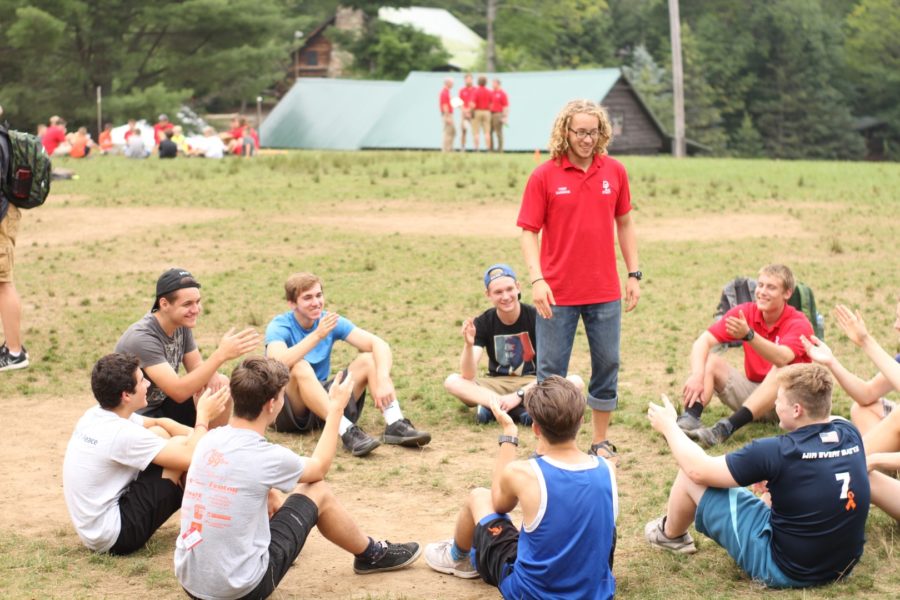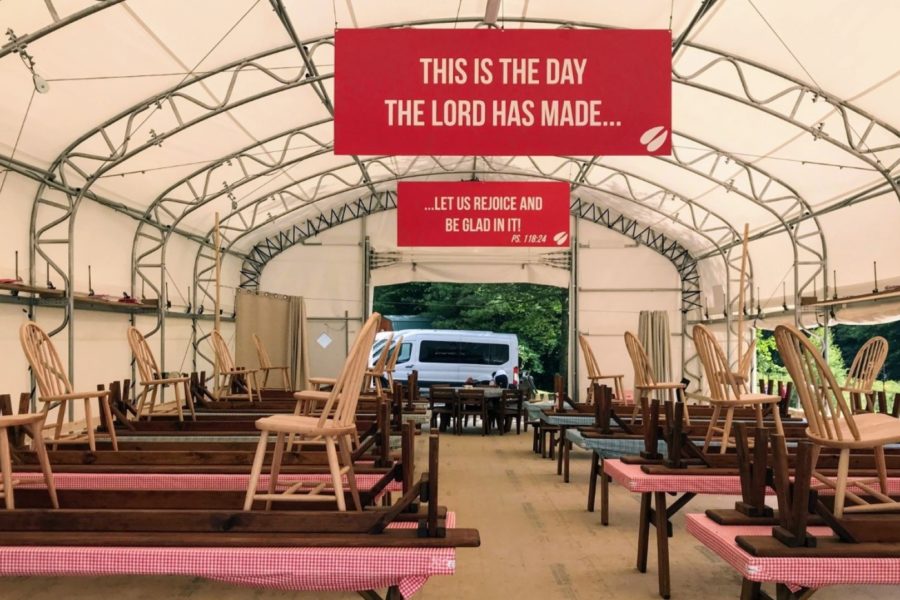Most of us today can look around the dinner table and admit that a few weeks ago we all shared a lot less time together. Instead of kisses goodbye to family and a rush out the door, travel-mugs in hand, many of us are now making our commute to whatever the quietest room of the house is. Others of us are sharing the kitchen table as a desk with the rest of the family and 2nd grade arithmetic is happening right alongside 2nd quarter income projections.
We’re together a lot. The fact is, it’s almost too much. Our togetherness can create conflict just as easily as it can firm up family bonds. With this in mind, a Deerfoot principle seems newly relevant at home: Challenge is a community catalyst.
When a cabin of Deerfoot boys gathers on day 1, there are so many things that can make them different from one another: Home state, home country, athletic ability, race, income, interests, academic ability, and more. This is why we front-load our session with challenges. We cook over a fire together on day 1. We hike together by cabin-group in the first week. Whatever makes us different, we share these challenges in common. Before long, challenges become accomplishments, strangers become friends, and a cabin bond is born.
Deerfoot can’t pretend to own this concept. It dates back at least 2000 years. Jesus brought together a team consisting of fishermen, a tax collector, a religious zealot and others, and unified them around a shared challenge with words like, “The harvest is ripe”, “feed my lambs”, and “Go and make disciples”. (Matt. 9:37, John 21:17, Matt. 28:19)
This is a concept we can easily bring into our homes in practical ways. Dads and moms, let’s find challenges to share with our kids in the coming weeks and months. We may find that they dissolve our differences and bind us as co-laborers. Here are a few simple, practical ideas:
- Find a project. Plant a garden, build a trail through the woods, redecorate a room, or change the oil in the car. If you’re not “handy” with any of those things, projects come in all types. Write something, draw something, paint something. Whatever you do, just be sure to share it, and to step back to appreciate what you’ve accomplished when it’s done. As a parent of two children under the age of six I know that not all help is helpful, but all children have the ability to work and feel affirmed by their accomplishment.
- Cook a meal. We’re all going to be doing a lot of this in the coming weeks, so why not let it bring us together. My son, Milo, and I are going to cook this up tomorrow: https://www.budgetbytes.com/peanut-butter-fluff-cups/. Admittedly, it’s not a meal, but notice the lack of anything sharp or burning hot. That’s a win for the under-6 culinary crowd.
- Develop a workout routine. Ideally this would include some outside time, but even if this social distancing keeps us inside we can do daily workouts in place. My top recommendation? 3000-12. This Deerfoot tradition consists of doing 3000 pushups and memorizing 12 Bible verses in 2 weeks’ time. Pick a passage and work on it with your kids. Its ok, and even healthy, for them to see you struggle as you work on the memorization. For the pushups, start with small sets if you need to – sets of 5 can get it done. That’s the beauty of being at home: You can drop and bang out some pushups without alarming the receptionist or showing up sweaty to a budget meeting. For a little inspiration, check out the workouts DL dad Chris Rivers has been doing with his boys.
- Hiking – this may not be possible everywhere, but there’s nothing like it if your situation allows. Set a challenging goal and work at it. You’ll have hours of time with your kids with nothing to do but walk and talk, all while sharing a challenge.
There’s more to Deerfoot’s “secret sauce” than just challenge. I remind our counselors often that in the Deerfoot program, community bonds are almost inevitable. It takes leaders to shape that group into a Christ-centered community. While doing these things, let’s be parents that talk about God – that notice the beauty of His creation, acknowledge his daily provision, and invite our families to pray with us regularly. Let’s be families that share the same challenge as Jesus’ rag-tag group of disciples to spread the gospel in our world. Our families will not be perfect (be glad you don’t have to eat something I cook with my 5-year-old). What they can be though, are Christ-centered communities that build godly men.













